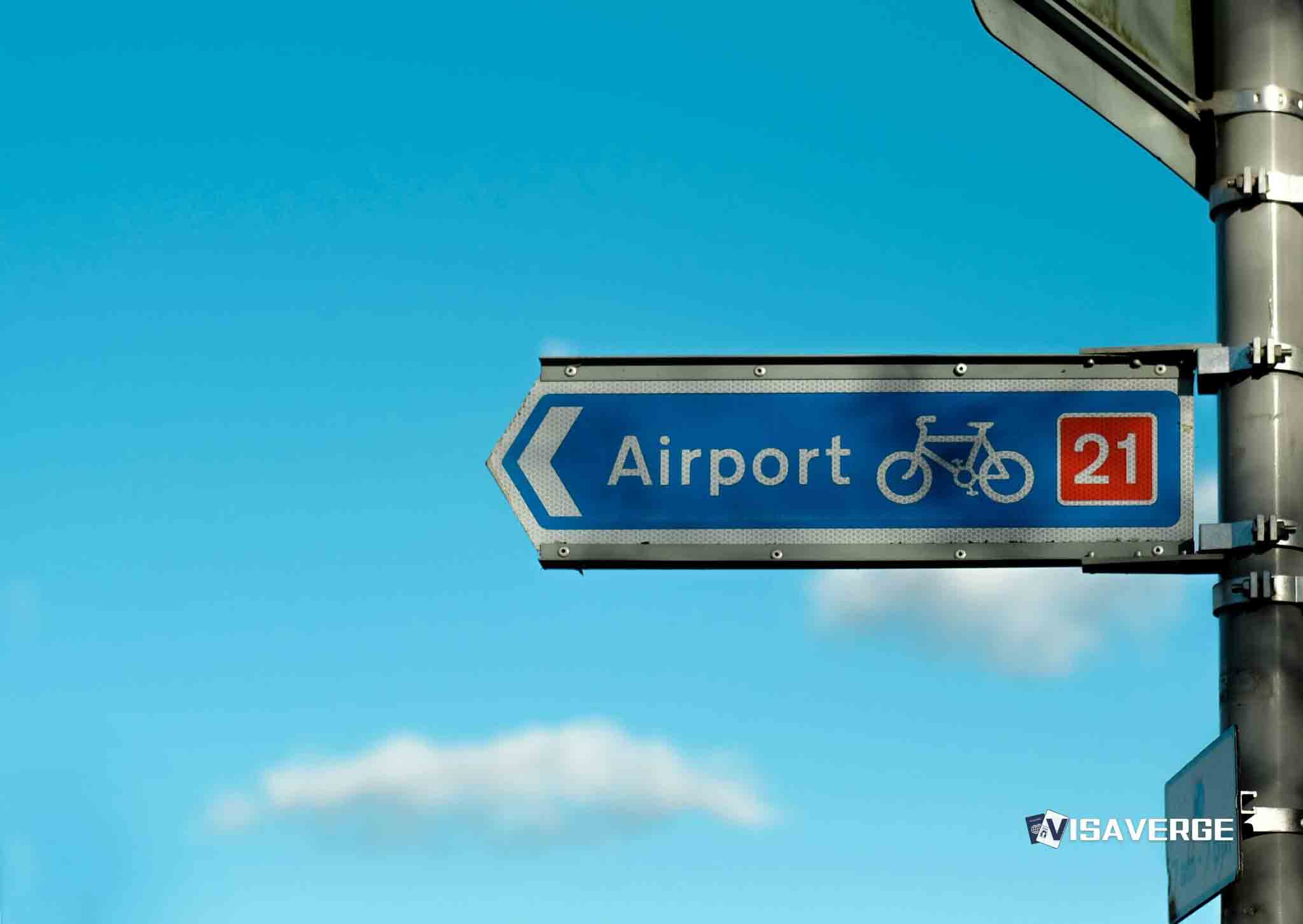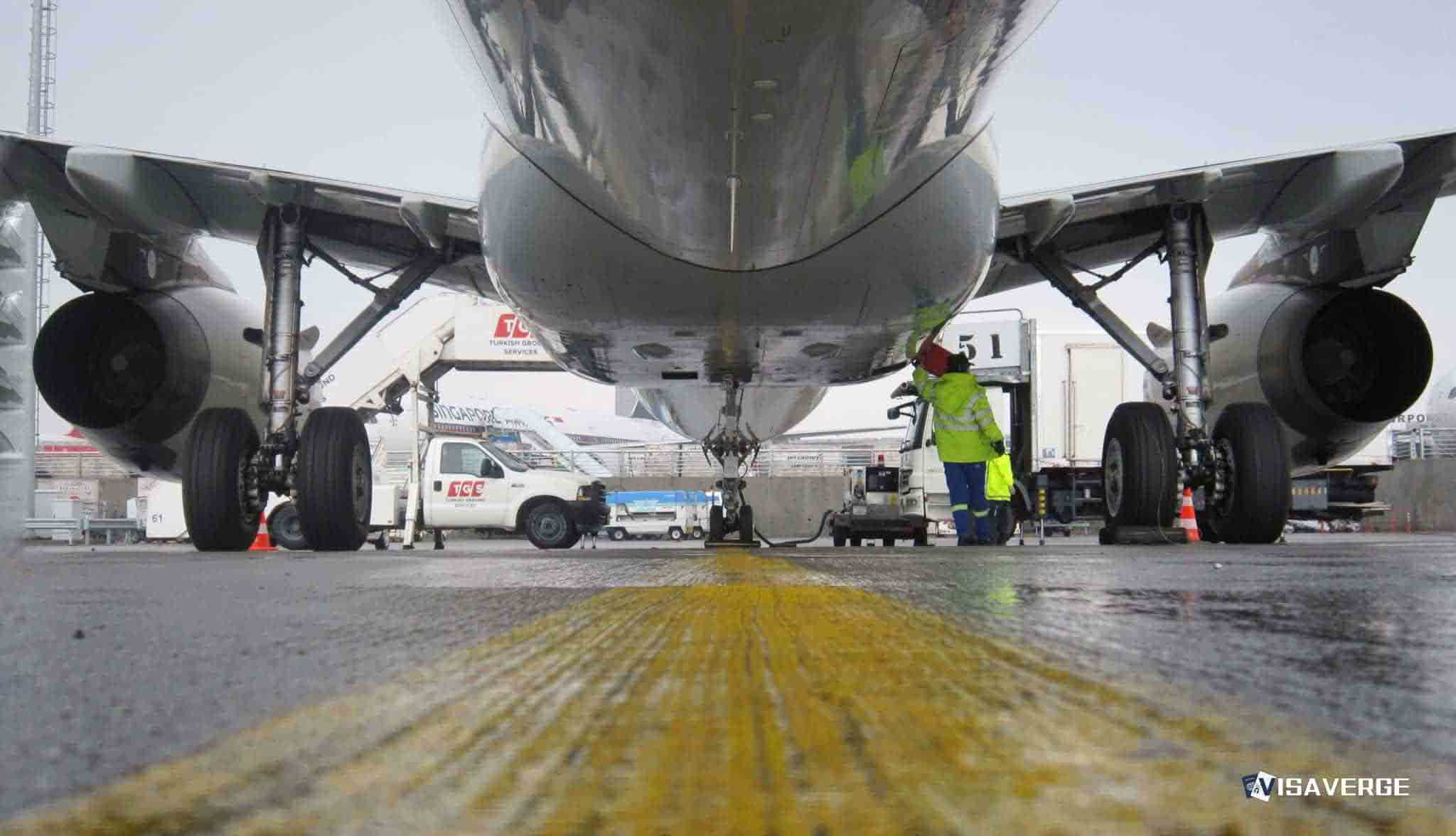Key Takeaways
• Airspace over Iran, Israel, Jordan, Iraq, Syria, and parts of the Persian Gulf closed since June 13, 2025.
• Major Gulf carriers like Emirates, Qatar Airways, and Etihad suspended or rerouted many flights, causing delays.
• Alternatives over Turkey, Egypt, Saudi Arabia rise; thousands affected by cancellations and extended flight durations.
The Iran-Israel-US conflict has triggered a wave of disruptions for air travelers across the Middle East and beyond. Since Israel’s surprise attack on Iranian soil on June 13, 2025, airlines have been forced to reroute Gulf flights, causing major delays and much longer travel times for passengers. The closure of airspace over Iran, Israel, Jordan, Iraq, Syria, and parts of the Persian Gulf has left airlines and travelers scrambling for alternatives, with no clear end in sight.
What’s Happening: The Immediate Impact on Air Travel

The escalation of the Iran-Israel-US conflict has led to widespread airspace closures across a large part of the Middle East. This means that airlines can no longer fly their usual routes over these countries. Instead, they must take longer paths around the closed areas, which adds hours to many flights. The result is a domino effect of delays, cancellations, and confusion for travelers, airlines, and airport staff.
Key facts:
– Airspace over Iran 🇮🇷, Israel 🇮🇱, Jordan, Iraq, Syria, and parts of the Persian Gulf is closed.
– Airlines are rerouting flights to avoid these areas, leading to longer journeys.
– Major Gulf carriers like Emirates, Qatar Airways, and Etihad Airways have suspended or rerouted many flights.
– Thousands of passengers have been affected by delays and cancellations.
Airlines’ Reluctant Response: Rerouted Gulf Flights and Suspensions
Airlines have had little choice but to persist with rerouted Gulf flights despite the challenges. Safety is the top priority, so flying over conflict zones is not an option. However, these new routes are far from ideal.
Recent airline actions:
– Emirates suspended all flights to Iran and Iraq through June 30, but continues some flights on longer, rerouted paths.
– Qatar Airways stopped flights due to Qatar’s airspace closure on June 23, with disruptions expected until at least June 26.
– Etihad Airways canceled flights between Abu Dhabi and Tel Aviv through July 15 and suspended several regional routes.
– Gulf Air extended cancellations to Jordan until June 27.
– Singapore Airlines canceled flights to and from Dubai from June 22 to at least June 25.
– British Airways suspended flights to Doha and Dubai indefinitely, with some flights diverted mid-route.
– American Airlines and United Airlines suspended flights to Qatar and Dubai, citing security concerns.
– Air France canceled flights to Dubai and Riyadh until June 30 and suspended flights to Tel Aviv until July 14.
– Finnair canceled all flights to and from Doha until June 30.
These decisions have not been made lightly. Airlines are aware that rerouted Gulf flights mean major delays and inconvenience for passengers, but safety concerns outweigh all other considerations.
Why Is Airspace Closed? Safety and Security First
The closure of airspace is a direct response to the risks posed by the Iran-Israel-US conflict. When there is fighting or the threat of missiles in a region, flying over that area becomes too dangerous. Aviation authorities around the world have told airlines to avoid these conflict zones.
What does this mean for travelers?
– Flights that once took the shortest path over the Middle East now have to go around, adding hours to travel time.
– Some flights are canceled altogether if there is no safe alternative route.
– Airlines are offering rebooking or refunds to affected passengers.
According to analysis by VisaVerge.com, airlines are relying more on alternative air corridors over Turkey, Egypt, and Saudi Arabia. This shift means that traditional Gulf hubs like Doha, Dubai, and Abu Dhabi are seeing fewer flights, while airports in other countries are becoming more important for connecting flights.
How Many People Are Affected? The Numbers Behind the Disruption
The scale of the disruption is huge. For example, on June 24 alone, Hamad International Airport in Doha had over 250 flight cancellations and more than 200 delays. This is just one airport—across the region, thousands of passengers have had their travel plans changed or canceled.
Key statistics:
– Hundreds of flights canceled or delayed each day at major Gulf airports.
– Flight durations increased by several hours for many routes.
– Global ripple effects as passengers miss connections or have to rebook on different airlines.
What Are Airlines and Authorities Saying?
Airlines and aviation experts have been clear about the reasons for these changes and the challenges they face.
- Emirates confirmed it will keep suspending flights to Iran and Iraq through June 30, but will continue rerouted flights with possible delays.
- Qatar Airways is working to restore operations after Qatar’s airspace closure, but warns that disruptions may continue.
- Etihad Airways has suspended flights between Abu Dhabi and Tel Aviv through July 15 and canceled several regional flights.
- British Airways has canceled flights to Dubai and Doha indefinitely, offering rebooking or refunds.
- Singapore Airlines says safety comes first, so flights to Dubai are suspended after security assessments.
- American Airlines and United Airlines have suspended flights to Qatar and Dubai due to security concerns.
- Air France has suspended flights to Tel Aviv until July 14 and canceled flights to Dubai and Riyadh until June 30.
- Finnair has canceled all flights to and from Doha until June 30.
- OAG Aviation’s Mayur Patel noted a big drop in flights via Middle Eastern hubs and a shift to alternative corridors.
- Ian Petchenik of Flightradar24 pointed out that Gulf carriers are still rerouting around Iranian airspace even after a ceasefire was declared.
What Does This Mean for Passengers? Practical Effects and Advice
For travelers, the impact of the Iran-Israel-US conflict and the resulting airspace closure is immediate and personal. Here’s what you need to know if you’re planning to fly through the region:
Longer Flights and Delays
- Expect longer travel times. Flights that used to take 6 hours may now take 8 or 9 hours due to rerouting.
- Delays are common. Even if your flight isn’t canceled, it may leave late or arrive much later than planned.
Cancellations and Rebooking
- Check your flight status often. Airlines are making changes at short notice.
- Rebooking and refunds are available. Most airlines are offering flexible options if your flight is canceled or delayed.
Alternative Routes
- Consider flying through different airports. With Gulf hubs less reliable, you might need to connect through Turkey, Egypt, or Saudi Arabia.
- Be ready for last-minute changes. The situation is changing quickly, so stay in touch with your airline.
Security and Safety
- Safety is the top priority. Airlines will not fly over conflict zones, even if it means inconvenience for passengers.
- Stay informed. Follow updates from your airline and official sources like the International Civil Aviation Organization (ICAO) for the latest on airspace status.
At the Airport
- Arrive early. With more delays and changes, it’s wise to get to the airport earlier than usual.
- Expect longer lines. Security and check-in may take more time due to operational disruptions.
The Bigger Picture: How the Conflict Is Changing Global Air Travel
The Iran-Israel-US conflict has done more than just cause delays—it’s changing the way airlines plan their routes and how people travel between continents.
Gulf Hubs Lose Their Edge
For years, airports in Dubai, Doha, and Abu Dhabi have been key connecting points for flights between Europe, Asia, and Africa. Now, with airspace closed and flights rerouted, these hubs are seeing fewer passengers and flights. This is a big change for the region’s airlines and economies.
Airlines Rethink Their Routes
With the airspace closure, airlines are using new routes over Turkey, Egypt, and Saudi Arabia. This shift could last even after the conflict ends, as airlines look for ways to avoid future disruptions.
Economic and Operational Challenges
- Gulf carriers face reduced traffic. Fewer flights mean less revenue for airlines and airports in the region.
- Operational costs are rising. Longer flights use more fuel and require more crew time.
- Travel planning is harder. Passengers and airlines both face more uncertainty.
How Did We Get Here? Background and Context
The current crisis began when Israel attacked Iranian nuclear sites on June 13, 2025. Iran responded with strikes on US bases. This military escalation led to immediate airspace closures and security alerts across the Middle East.
Historically, the Middle East has been a crossroads for global air travel. The region’s airports have connected people from all over the world. But the Iran-Israel-US conflict has shown how quickly this can change when security is threatened.
What’s Next? The Future of Air Travel in the Region
A ceasefire was declared on June 24, but so far, airspace over Iran and nearby countries remains closed. Airlines are still taking the long way around, and many flights are canceled or delayed.
What to expect:
– Disruptions will likely continue through the end of June, with some suspensions lasting into mid-July.
– Airlines and authorities are watching the situation closely. If things calm down, normal routes may slowly return.
– Some changes may be permanent. Airlines could keep using alternative routes to avoid relying too much on Middle Eastern airspace.
Step-by-Step Guidance for Affected Passengers
If your travel plans are affected by the Iran-Israel-US conflict and the resulting airspace closure, here’s what you should do:
- Check your flight status regularly on your airline’s website or the airport’s official site.
- Contact your airline for rebooking or refund options if your flight is canceled or delayed.
- Look for alternative routes that avoid the Middle East, such as flights connecting through Turkey or Egypt.
- Stay updated on the latest security and travel advisories from your airline and official sources.
- Arrive at the airport early to allow extra time for check-in and security.
Resources for Travelers
For the latest information and help, use these official airline websites:
– Emirates: emirates.com
– Qatar Airways: qatarairways.com
– Etihad Airways: etihad.com
– British Airways: britishairways.com
– Singapore Airlines: singaporeair.com
– American Airlines: aa.com
– United Airlines: united.com
– Air France: airfrance.com
– Finnair: finnair.com
For official updates on airspace status and safety, visit the International Civil Aviation Organization (ICAO).
Expert Perspectives: What Industry Leaders Are Saying
Aviation experts agree that the Iran-Israel-US conflict has forced airlines to make tough choices. Safety comes first, but the cost is high for both airlines and passengers.
- Mayur Patel of OAG Aviation says there’s been a big drop in flights through Middle Eastern hubs, with more flights using alternative routes.
- Ian Petchenik of Flightradar24 notes that even after a ceasefire, airlines are still avoiding Iranian airspace, showing how cautious they are.
Passengers are frustrated by the delays and uncertainty, but most understand that safety is the main concern. Airlines are trying to help by offering flexible rebooking and refunds, but the situation remains challenging.
The Human Side: How Travelers and Workers Are Coping
For many people, these disruptions are more than just an inconvenience. Some travelers are missing important family events, business meetings, or vacations. Airline staff and airport workers are under pressure to manage the constant changes and help frustrated passengers.
Families with children, elderly travelers, and those with tight schedules are especially affected by the longer travel times and uncertainty. The travel industry is working hard to support these groups, but the situation is difficult for everyone involved.
Looking Ahead: Lessons and Long-Term Changes
The Iran-Israel-US conflict and the resulting airspace closure have shown how quickly global travel can be disrupted by political events. Airlines, airports, and travelers may need to adjust to a new reality where routes can change overnight.
Possible long-term effects:
– Airlines may keep using alternative routes even after the conflict ends.
– Gulf hubs may take time to recover their status as top connecting points.
– Travelers may need to be more flexible and prepared for sudden changes.
Final Takeaways and Practical Steps
If you’re planning to travel through the Middle East or have a connecting flight in the region, check your flight status often, stay in touch with your airline, and be ready for changes. Airlines are doing their best to keep passengers safe and informed, but the situation can change quickly.
For the most reliable information, use official airline websites and trusted sources like the International Civil Aviation Organization (ICAO). As reported by VisaVerge.com, the Iran-Israel-US conflict has made rerouted Gulf flights and airspace closure a reality for now, but airlines and authorities are working hard to restore normal travel as soon as it’s safe.
Stay patient, stay informed, and know that safety is always the top priority in these challenging times.
Learn Today
Airspace Closure → Temporary restriction of flight paths over a region due to safety or security concerns.
Rerouted Flights → Flights redirected from their usual paths to avoid unsafe or restricted airspace.
Gulf Carriers → Major airlines based in the Persian Gulf region, such as Emirates, Qatar Airways, and Etihad.
Ceasefire → An agreement to stop hostilities temporarily, impacting regional security and travel routes.
International Civil Aviation Organization (ICAO) → A UN agency setting global aviation standards and guidelines, including airspace safety.
This Article in a Nutshell
Since June 13, 2025, the Iran-Israel-US conflict closed Middle Eastern airspace, forcing airlines like Emirates to reroute flights, causing widespread delays. Passengers face cancellations and longer journeys as Gulf hubs lose traffic. Airlines prioritize safety despite operational challenges and shifting routes to Turkey, Egypt, and Saudi Arabia amid uncertainty.
— By VisaVerge.com







